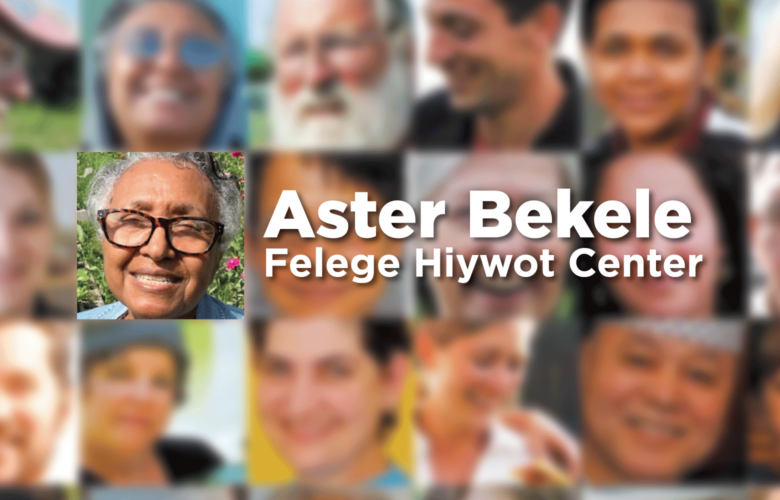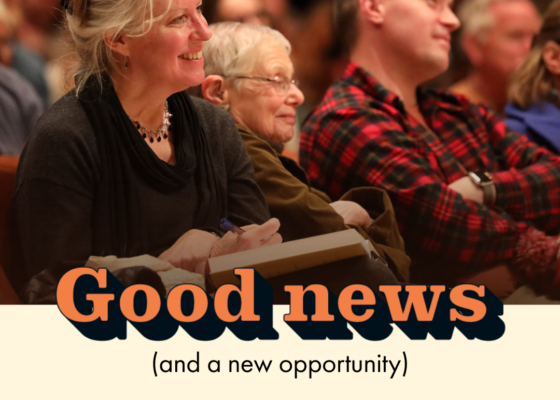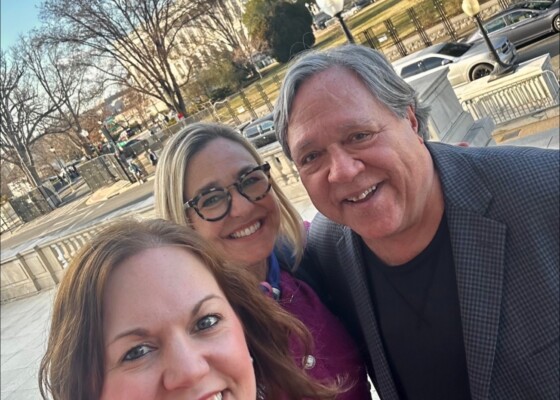Food for Thought: Aster Bekele
November 7, 2024This essay appears as part of Food for Thought: An Indiana Harvest. Read more about why we are revisiting this theme and learn more from the author, David Hoppe. When…
This essay appears as part of Food for Thought: An Indiana Harvest. Read more about why we are revisiting this theme and learn more from the author, David Hoppe.
When we first met Aster Bekele in 2011, the Felege Hiywot (Feh-LEH-geh HEY-what) Center, the outgrowth of the Youth Farm Initiative she started in 2004, was still a relatively new concept. Ms. Aster, who came to Indiana from her native Ethiopia in 1974 to study chemistry and then work at Eli Lilly, started the Center as a way of engaging with the inner city kids she met in her near Eastside Indianapolis neighborhood. Felege Hiywot, which translates, “Looking for Direction to life,” is now a community garden, alternative school, training ground and cultural center — a source of inspiration and stability in the lives of thousands of young people.
We are still going. It was really hard at first because there was so much need. Every student needed so much. We could meet one thing, but what about all the rest of them?
We handled it by partnering with other social service organizations. So we were able to focus. That’s what helped us. Everything is growing! I think we really have been blessed with so many different skills. Volunteers who gave their time or their counsel. There is nothing in this place we used contractors for. It’s been 100 percent volunteers. It’s brought so many hearts together. The students were being mentored. People who came to work on the building, or to work on the vegetable beds, worked with the students. Everybody came together from all over Indianapolis. Now, after 16 years, we got the Lilly Endowment grant — $2 million — are you kidding me? It was hard to believe. That happened in the Spring of 2021.
The need of the students is always unlimited, but they keep wanting to come. That means they’re learning. They’re growing vegetables. They’re really making decisions here. They trust that we’ll stay in their lives. They’re planning for next Spring. They know we’re not going to abandon them. They like that connection.
We were assuming that after eighth grade, they would leave. But after eighth grade they came back. And what happened? We hired them for camp counselors. They start working with others growing food. They become a positive influence. It didn’t take the new students long to try tasting new vegetables because the ones before had already been eating them. They weren’t dying! It made the process a lot faster.
We have four generations of students so far. Before Covid we added it up — we’ve seen 5,000-6,000 students. Because they love it, because they wanted to be here: it grew like that. The high school kids stayed, became counselors, were teaching, working, bringing vegetables home, delivering vegetables in their neighborhoods, talking to parents. Once students learn about food and eating healthy, they are the best educators. They change households.
Over the years we learned that even though we were teaching where food comes from, there are other barriers. A lot of our kids become homeless. If they know us well enough, they will tell us and we try to get help. But a lot of families are worried that if they tell, their kids will be taken away.
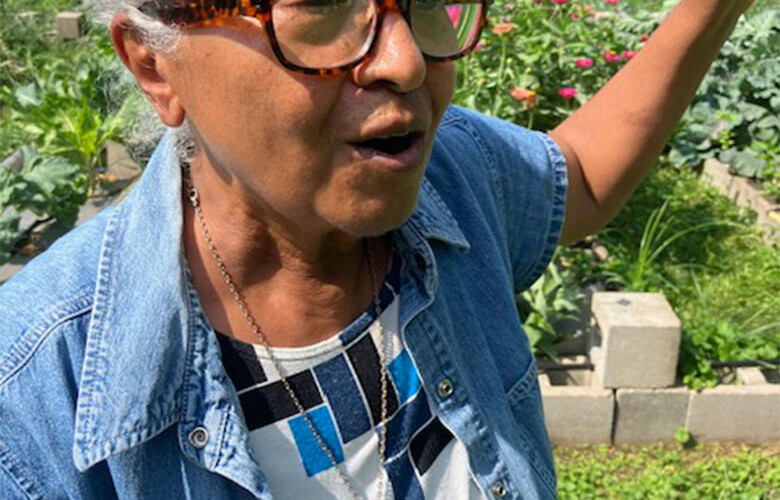
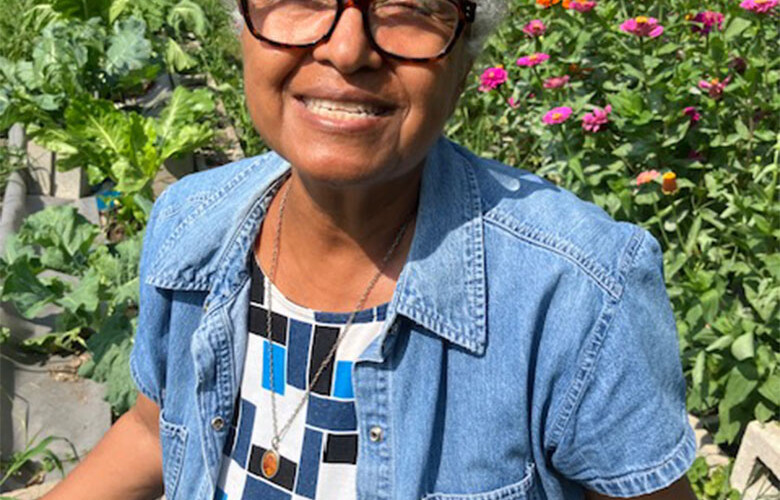
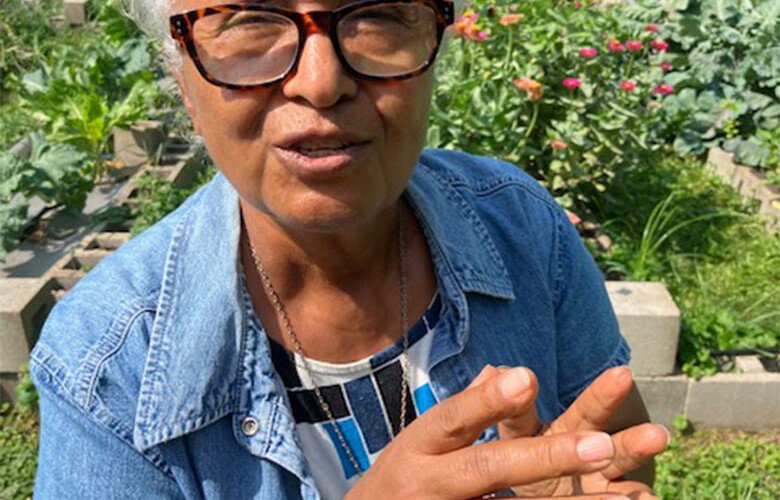
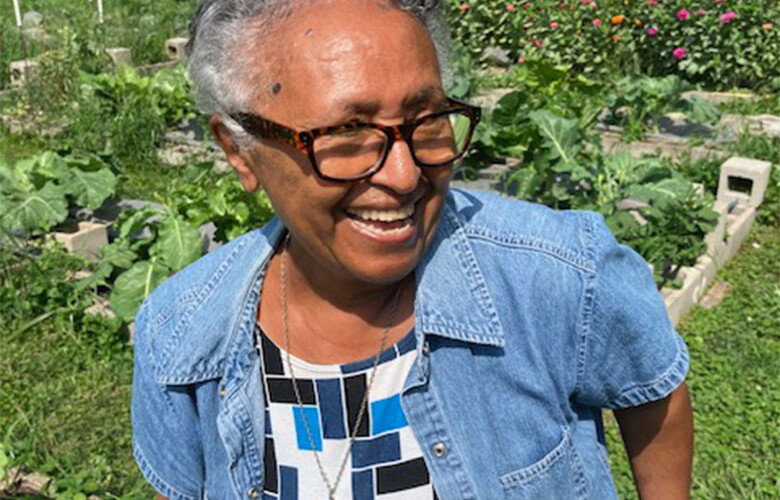
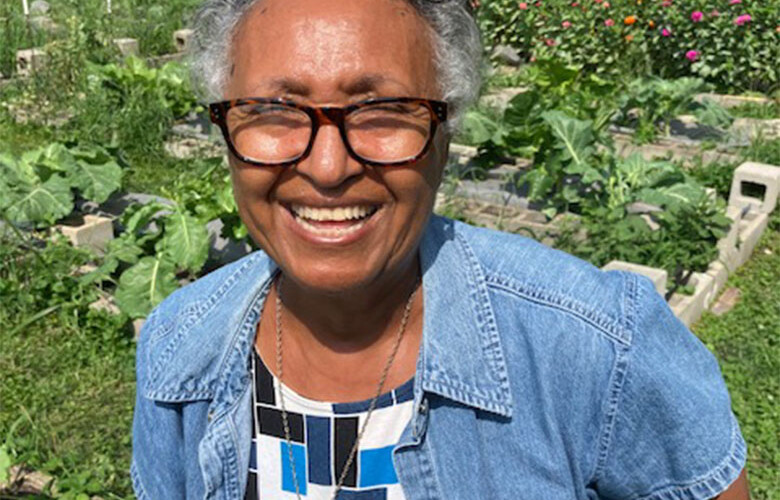
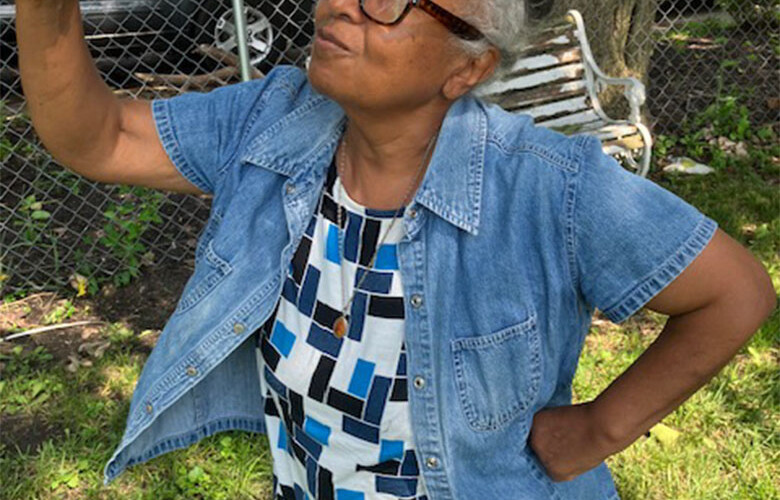
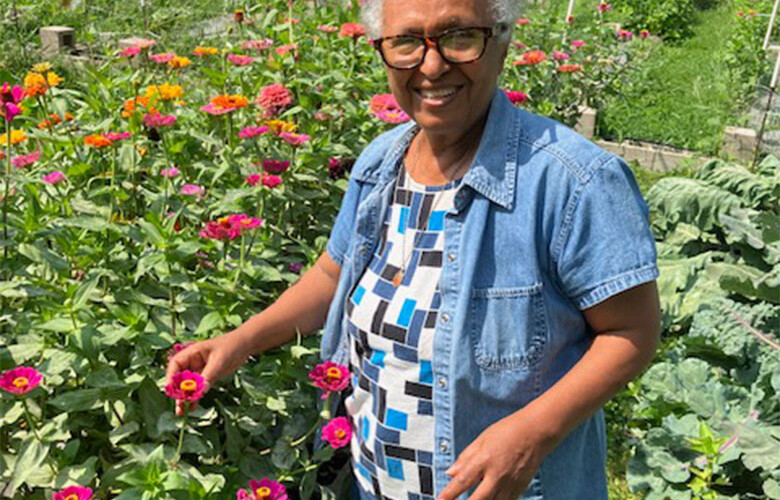
We were trying to teach cooking, but this girl told me, “I can’t do this.” “Why not,” I asked her. “I don’t have a stove.” Our solution was Crock Pots. The housing department gave us Crock Pots. We asked people to donate them. The students started learning to cook with Crock Pots. Wherever they go, they can plug them in. They also don’t need to store things. They can buy it and cook it.
We have a two bite rule. Whatever food is being served, the kids have to take two bites. They can’t just say I don’t like it. The only exception is if they feel like they’re going to throw up, they can spit it out!
Otherwise, they have to take two bites.
This really works because taking two bites, sometimes they ask for more. Or they will say, I don’t care for it — but now they see why they don’t care for it. It’s not I don’t want to eat because I’ve never had it before. We have to eliminate negative response about food they’re not used to. We have to tell them, it’s not nasty, you haven’t tried it yet. You don’t say “nasty” about food somebody eats.
The food becomes comfort, healing. Also owning. Each student has their own bed. They need to own something. And what they own they can give to people. Tomatoes. Collard greens. There’s a lot pride in that. They enjoy taking people to their bed and telling them how they’ve done it.
After they’ve become really competent, they can go places, like farmers markets. This lady came and she started crying, standing right in front of our booth. The students hugged her and asked if she was okay. And she said, “I didn’t know the children were doing so many good things.” She was overcome because she thought everything was so bad. We were doing something in the middle of this place nobody wanted to drive through.
We now have an orchard. We’re also growing in Unity Park. When the kids are walking there, they’re picking up trash. It’s a practice. Just get a bag and, when you’re walking, pick, pick, pick. For years we’ve been doing that and it becomes a habit. I tell them, we’re mending the Earth. What matters is you do the right thing. Don’t worry about anybody else. So many of them getting it is what keeps us going.
I didn’t come here with this great idea about a different way of learning. Back in 2004, this little girl taught me. I was going into IPS schools to talk about science during lunch breaks. I wasn’t getting anywhere, it was boring. The kids didn’t like it. I thought I would pack it in. I said, “Guys, I guess you’re just not interested.” And this little girl said, “I don’t want to be a scientist. Can we just plant flowers?” I thought, “What? Do you know how much science is in that?”
So, for the record, she started the program.
That was a turnaround for me. It wasn’t like I sat down and planned it. I stress the fact, every year when a student comes, the importance of asking questions — and wanting to do things in a different way. Being innovative. That girl started the program by asking questions.
The Earth gives you that kind of dialogue and options to connect with people. You’re harvesting. You’re cooking. You’re talking to each other. Different people like different seasonings! There’s so much sharing. And science is in it. Science is in everything.
